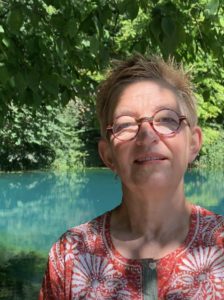In the documentary movie Silent Stories Catherine Vuylsteke and Hanne Phlypo portray two men and two women from Algiers, Dakar, Bagdad and Conakry, who had to flee their country because of their sexual identity.
At first sight the Algerian bisexual Arezki, the lesbian Fulbe-woman Rabiatou, the Senegalese gay activist Jean-Louis and the iraqi transsexual Sarah don’t have much in common. They have an entirely different cultural background, educational level and there’s quite an age difference. What brings them together is the homophobia in their countries of origin. Jean-Louis managed to work as an activist until he was outed by a boulevard magazine. Rabiatou had never heard of lesbian love in Guinea but when she was caught with a female friend in a motel room, she was ritually purified and quickly married off to an old man. Sarah felt accepted by her highly educated mother but she realized that society as a whole would not be that tolerant. In Iraq her dream of being a woman like all others could never come true. For Arezki, coming to Belgium to marry a man was no mere matter of gay love, it also meant getting rid of the burden of suffocating norms and duties.
Silent Stories shows how each of the four deal with the past: with the burden of the community, the family and the religion. At the same time the movie looks into the actual lives of its protagonists: the asylum center in which Sarah has been living for years, the successful integration of Arezki, Rabiatou’s studies, the activism of Jean-Louis.
